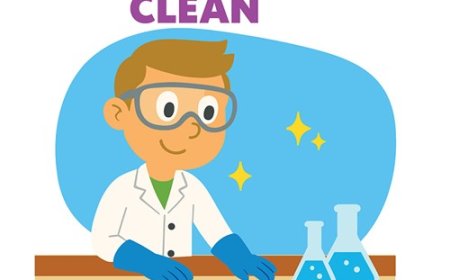Real-World Applications of Electricity for Students
Learn how electricity is used in transportation communication medicine industry and entertainment plus future innovations with examples vocabulary and a student quiz
⚡ Real-World Applications of Electricity
🌟 Introduction
Electricity isn't just a science topic in a classroom - it's a vital part of almost every part of our modern lives. From powering our homes to running life-saving hospital equipment, electricity has transformed the way we live, work, and connect with each other. Without it, our world would be slower, less connected, and far less efficient.
Electricity's uses go far beyond simply lighting up rooms or charging devices. It plays a role in transportation, communication, medicine, industry, and even entertainment. And as technology advances, new and innovative ways to use electricity continue to emerge - from smart homes to renewable energy-powered cities.
Understanding how electricity is applied in the real world helps us appreciate its importance and teaches us how to use it responsibly and sustainably.
🚗 Transportation
-
Electric Vehicles (EVs): Cars, buses, and trains powered by electricity instead of gasoline.
-
Subways & Trams: Efficient public transport powered by overhead lines or electric rails.
-
Air Travel: Some experimental planes use electric motors for cleaner flight.
📡 Communication
-
Television & Radio: Send and receive signals powered by electricity.
-
Internet: Data centers, routers, and computers all run on electricity.
-
Phones: Mobile networks and satellites rely on constant electrical power.
🏥 Medicine & Healthcare
-
Medical Devices: X-ray machines, MRI scanners, heart monitors.
-
Life Support: Ventilators, incubators, and infusion pumps.
-
Telemedicine: Uses electricity for video calls, patient monitoring, and data transfer.
🏭 Industry & Manufacturing
-
Factories: Use electricity to power machines, conveyor belts, and robotics.
-
Construction: Electric tools and equipment improve efficiency and safety.
-
Mining & Agriculture: Machinery powered by electricity helps produce food and materials.
🎮 Entertainment & Everyday Life
-
Home Appliances: Refrigerators, microwaves, washing machines.
-
Entertainment Systems: TVs, gaming consoles, and streaming devices.
-
Lighting & Heating: Keeps homes comfortable and well-lit.
🔮 Future Uses of Electricity
-
Smart Cities: Automated systems for lighting, traffic control, and energy use.
-
Renewable Energy Integration: Solar panels, wind turbines, and battery storage.
-
Electric Aviation: Future passenger planes powered by electricity.
📚 Vocabulary Words
-
Electric Vehicle (EV): A vehicle powered entirely or partly by electricity.
-
Telemedicine: The use of technology to provide healthcare remotely.
-
Data Center: A facility that houses computer systems and stores digital information.
-
Smart City: A city that uses technology and electricity to improve services and sustainability.
-
Renewable Energy: Energy from sources that do not run out.
✨ Fun Facts
-
The first electric cars were built in the late 1800s.
-
The world's fastest electric train in China can reach speeds over 370 mph.
-
Hospitals often have backup generators to keep life-saving equipment running during blackouts.
📌 Key Takeaways
-
Electricity is used in transportation, communication, healthcare, industry, entertainment, and more.
-
Without electricity, most modern technology would not function.
-
Advances in renewable energy and technology are creating new uses for electricity.
-
Using electricity efficiently helps conserve resources and protect the environment.
🖱 Interactive Multiple-Choice Quiz
1. Which type of vehicle runs on electricity instead of gasoline?
A) Electric Vehicle (EV)
B) Diesel Truck
C) Gasoline Car
D) Steam Engine
2. Which of these is an example of electricity in healthcare?
A) MRI Machine
B) Bicycle
C) Typewriter
D) Hammer
3. What powers most modern communication systems like the internet?
A) Solar energy only
B) Electricity
C) Gasoline
D) Steam power
4. What is a smart city?
A) A city with only electric cars
B) A city that uses technology and electricity to improve services
C) A city built without roads
D) A city that has no power plants
5. Why do hospitals have backup generators?
A) To save money
B) To keep life-saving equipment running during power outages
C) To store food
D) To provide lighting for events






















































